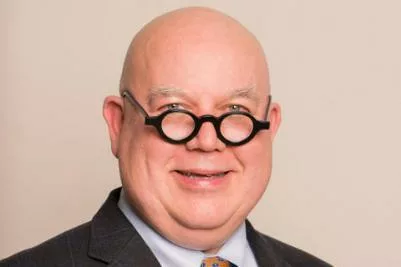Reducing Opioid and Addiction’s Impact
Faculty in several departments and programs are dedicating their work toward raising awareness about and reducing the impact of opioid-use disorders and other addictions.
Traditionally, drug development arises from a university discovery for which a pharmaceutical company acquires the rights and thereafter navigates the path to market approval. This process of shepherding a therapeutic discovery to become a U.S. Food and Drug Administration (FDA)-approved drug costs hundreds of millions of dollars.
Historically, due to mission and structural reasons, universities simply have not been involved in drug development and manufacturing. Rather, they relied on industry to pick technologies and bear the burden and risk of developing blockbusting winners.

Today, the advent of cellular therapy has changed the constraints of that paradigm, as informed by the revolution of living cells used as drugs. Academic medical centers, including the University of Wisconsin School of Medicine and Public Health (SMPH) and UW Health, now can take ownership of developing their own innovations for the greater good.
Bone marrow transplantation, like blood transfusion and solid organ transplantation, is a “practice of medicine,” and blood and tissues are not considered “drugs” according to state and federal regulatory agencies. Any properly accredited hospital can provide these services. However, if cells or tissues are “more-than-minimally manipulated” by laboratory handling or gene engineering, they are considered to be “drugs” and are subject to exacting safety and manufacturing oversight by the FDA.
Indeed, FDA-regulated cell therapies are emerging as a positive force in achieving a cure for cancer and alleviating suffering for vexing health problems that have been inadequately addressed by traditional methods.
More than half a century ago, Dr. Fritz Bach, then a faculty member at the School of Medicine and Public Health, discovered a means for performing successful bone marrow transplantation. His work led to the first-ever cure of a toddler with an otherwise lethal bone marrow disease in 1968. Bone marrow transplantation is now routinely curing adults and children with cancer.
Similarly, two decades ago at UW–Madison, Dr. James Thomson launched the field of modern stem cell regenerative medicine. As these examples show, UW–Madison historically has been a thought leader in transformative discoveries in cell therapies.
The next logical step is owning the clinical development of these life-saving cell therapies to benefit people in Wisconsin and beyond. To drive such innovation, academic medical centers must retool as FDA-compliant drug manufacturers, akin to the biotech industry.
This is not a straightforward feat, nor is it naturally aligned with the historic expectations of centers of learning and discovery. Few are determined or destined to do so, but the School of Medicine and Public Health and UW Health have joined an elite group of centers that are leading the charge in developing advanced cell therapy.
Together, in 2016, the School of Medicine and Public Health and UW Health launched the UW Program for Advanced Cell Therapy (PACT). Its mission is to develop and deploy advanced cell therapies for unmet medical needs, including cancer, in children and adults. The PACT’s operational model bridges UW–Madison discoveries and FDA-regulated deployment.
Through UW Health’s pharmaceutical-grade manufacturing capabilities, which are part of the PACT, we can de-risk living-cell technologies on their clinical development pathway to marketing approval while providing our patients access to cutting-edge cell therapies.
Three elements of PACT’s future success are ingenuity in discoveries at the School of Medicine and Public Health, clinical excellence at UW Health and sustainability of the program. The PACT upholds the important value of providing patients who are suffering from unmet medical needs with access to safe, FDA-compliant, innovative cell therapies dispensed by our expert clinical scientists.
Our first studies — led by Drs. Inga Hofmann and Arjang Djamali (PG ’03) — will examine the use of immune cells to treat life-threatening virus infections in bone marrow transplant and kidney transplant recipients, respectively. Additional cell therapies driven by UW–Madison discoveries are in the hopper. Many of these technologies are amenable to traditional pharma-driven developments, and we see ourselves as an enabling cog in the Wisconsin entrepreneurial life sciences ecosystem. An added element of uniqueness is our ability to develop and deploy cell technologies that are impactful and sustainable.
The PACT’s vision is that future advanced cell technologies will be affordably dispensed in a distributive justice model — meaning that patients who need it can access it without financial jeopardy. This is where UW–Madison innovation, the Wisconsin Idea and cell therapy development intersect to achieve improved patient outcomes at our academic medical center.